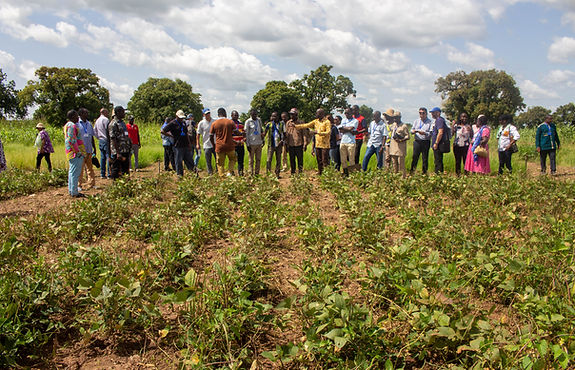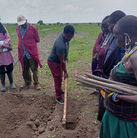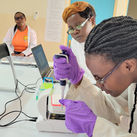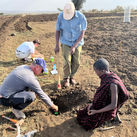

Context & Objectives
African countries suffer from high levels of food and nutrition insecurity exacerbated by the increasing impact of climate change on agricultural production. The Sustainable Intensification (SI) approach offers practical ways to increase agricultural yield while preserving natural resources (water, soil, biodiversity, and land) and the flow of ecosystem services. SI requires fitting interventions according to local needs and contexts. Based on these assumptions, the EWA-BELT project aims at promoting food production systems through SI in representative small-holder farming systems of different agro-climatic areas of East (Ethiopia, Kenya, and Tanzania) and West (Burkina Faso, Ghana, Sierra Leone) Africa and, consequently, to realize an interregional African “belt” able to promote SI by assessing and exchanging best practices and experiences among different contexts.
Case study areas
FFRUs
Farmer Field Research Units
Research activities on SI technologies are based on a multi stakeholder approach that foresees the direct involvement of farmers and other relevant actors at different levels along the value chain through Farmer Field Research Units or FFRUs, a learning and exchange space.
.png)


EWA-BELT
FINAL CONFERENCE
15-17 July, 2025, Addis Ababa, Ethiopia
The EWA-BELT Consortium is pleased to present the Final Conference, to be held from 15 to 17 July, 2025, in Addis Ababa, Ethiopia and live-streamed online on Zoom. The EWABELT Project partners and stakeholders will gather at the African Union Headquarters for three days to exchange the results and lessons learnt from the EWA BELT Project and other initiatives on sustainable intensification and agroecology practices in smallholder farming systems in Sub-Saharan Africa.

















































